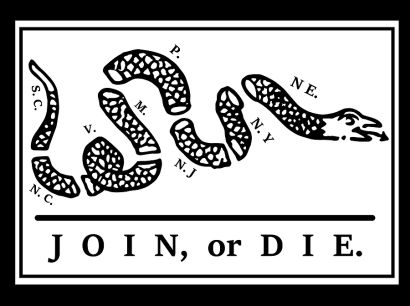This Week's Story
subscribe to podcast [click here] or play audio below
Franklin gives himself and offers his fortune to help the 13 colonies receive fairness from Britain.

This Week’s Story relives American history and the Bible through brief inspiring stories presented on mp3 audio recordings and text for reading.
Our solutions require wisdom, experience, and grit! part eight
The 13 Colonies in the New World did not want war; but, they certainly did not want any powers dictating how they lived. The problem was they needed wisdom, experience, and grit to work together.
War with European nations threatened and invaded the colonies in the 1740’s and ‘50’s. Their disagreements and battles with Indian tribes rarely were settled with mutual negotiation. Attempts by colonists who wanted organization among the colonies resulted in each colony wanting its own independence.
In each colony there were some voices of calm and reason. During the French and Indian Wars Benjamin Franklin believed that the colonies had to unite for self-defense against the French and Indians.
He presented his Plan of Union which resulted in seven colonies sending delegates who met together. The delegates from the colonies accepted the plan; but the colonies did not accept the plan.
Franklin commented, “Everyone cries a union is absolutely necessary, but when it comes to the manner and form of the union, their weak noddles [brains] are perfectly distracted.”
He printed the famous “Join or Die” cartoon. It showed a snake cut into pieces. Each piece represented a colony.
During the French and Indian Wars Franklin and some Americans fought with the British regiments. He gave suggestions to the British General Braddock about avoiding surprise attacks from the French and Indians. George Washington tried to show the British how their formal fighting style would be disaster for the British against the American Indians. The general was killed and his army almost destroyed in one battle.
Franklin became increasingly committed in trying to convince the British Parliament to give the Americans fairer representation in Parliament. The rights of the Americans needed to be recognized and protected. He went to Britain for most of the next eighteen years as an unofficial representative for the American point of view.
He took part in the fight over the Stamp Act. He argued in Parliament before the House of Commons and brilliantly answered 174 questions about taxation without representation.
Benjamin was amazingly committed to resolving difficulties with the British! In 1773 he promised to give his entire fortune to pay for the tea destroyed by the Boston Tea Party, if the British government would agree to stop its unjust tax on tea sold in the 13 Colonies. The British government ignored his proposal!
Benjamin Franklin returned to Philadelphia, Pennsylvania in 1775 about two weeks after the Revolutionary War began. The next day he was chosen to serve in the Second Continental Congress. He rarely spoke to the entire Congress, but he was one of its most important members, contributing many helpful plans. He is appreciated for his role in helping to write the “Declaration of Independence,” which states why the 13 Colonies fought for their independence from Britain.
Please join us: Barbara Steiner, Todd Warren, and myself, Carlos Gamez, for the conclusion of our series on Benjamin Franklin.
Please visit thisweeksstory.com or follow us on X, formerly Twitter, by going to This Week’s Story @story26502
<< previous story] [next story >>
We invite your comments! [click here to comment]
This Week's Story is a non-profit supported by listeners. [click here to make a donation]
